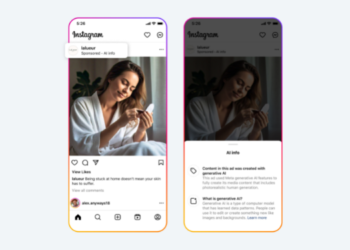The European Union is ready to roll out its Digital Services Act (DSA), a landmark regulation targeting major tech platforms, including giants like Facebook and Instagram. This monumental shift in the digital landscape is not only a game-changer for European tech establishments but also for every tech entity functioning within the EU’s bounds.
Meta, the parent company of Facebook, Instagram, and other services, has always been at the forefront of advocating for a unified digital regulatory system. Such a system, in their opinion, would ensure user rights online, promote innovation, and demand greater accountability and transparency from platforms. Meta views the DSA as a promising step in that direction, emphasizing clarity over content micromanagement.
Preparation for DSA’s integration began in earnest last November for Meta. They’ve since been revamping their safety and integrity protocols to align with the DSA’s expectations. A whopping team of over 1,000 experts are laser-focused on aligning with the DSA’s standards, rolling out enhanced transparency measures and giving users more personalization options across Facebook and Instagram.
A significant spotlight has been on Meta’s advertising strategies. Building upon their already robust ads transparency foundation, the Ad Library will now showcase all ads targeting EU citizens, complete with comprehensive data like targeting criteria, display durations, and more. This inclusive approach ensures that for a whole year, any user can delve into the nuances of any ad displayed within the EU.
In a bid to make their platforms safer for younger audiences, Meta has revised the ad-viewing experience for teens. Notably, teenagers worldwide are now served ads only based on their age and location, excluding app activity metrics.
To further increase user trust and understanding, Meta is unveiling 22 system cards for Facebook and Instagram, shedding light on the AI algorithms ranking content across the platforms. This move is complemented by the introduction of the Meta Content Library and API, designed for researchers to access a vast swath of public content on both Facebook and Instagram.
Empowering users to take control of their digital experiences, Meta offers European users an alternative way to view content, bypassing Meta’s ranking algorithms. This means a more organic viewing sequence for Stories and Reels and non-personalized Search results.
The European Union’s Digital Services Act signifies a new era of accountability, transparency, and user empowerment in the digital realm. While the act’s ambitious framework is commendable, its practical implementation is crucial. Meta’s proactive engagement with the DSA outlines its commitment to creating a safer and more transparent digital environment. However, ensuring the primacy of the DSA over national laws is essential to maintain consistency and clarity across Europe. Collaborative efforts between tech giants and European regulators can shape a cohesive digital future.




















































